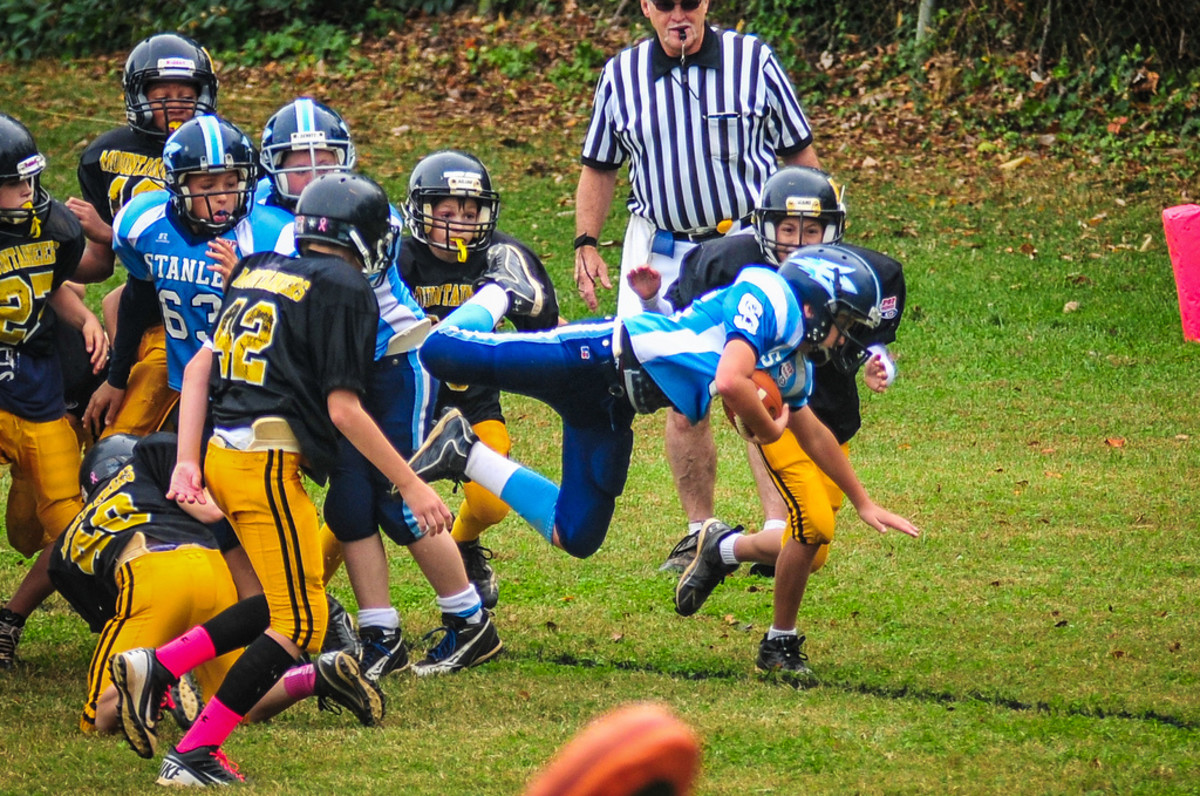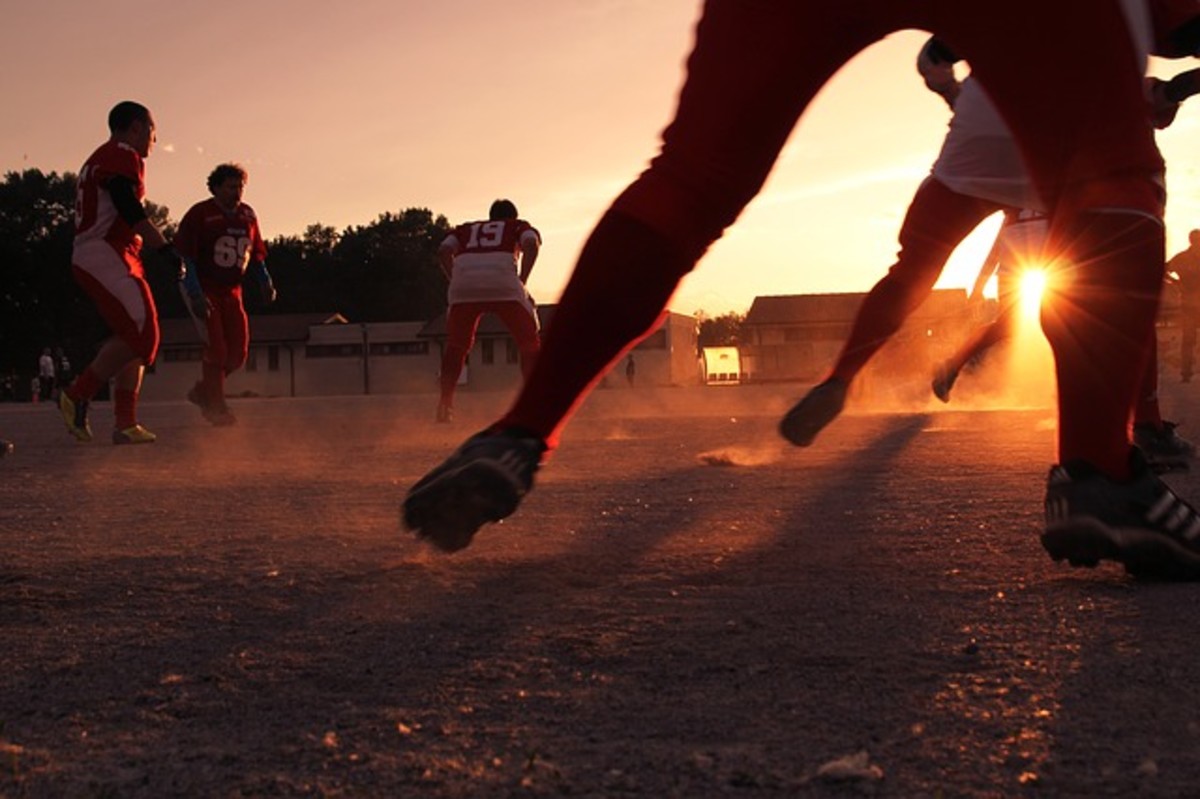How to Become a College Football Director
Introduction
Many people love taking part or watching various sports events. Roosevelt Frankline, a onetime U.S president once said “sports is the fiber of what people stand for. It keeps people’s spirits a life”. Irrespective of whether one is a fan or player, football is the most popular sports in the world today. Each year, football is played in schools, colleges, nationally and in international spheres. Football and other types of sports can be related to many life aspects. In my lifetime, I consider football as the best sport I have ever participated in.
In general, football is an exciting game. Many people opt to watch the games in person while others watch them on television or hear them over the radio. The game is also very unpredictable since many factors affect its outcome. Although the team’s talents may be pre-dedicated, people may not easily predicate the mental toughness, or dedication of the players in a football match. A team may win big at one time, and the next time, it plays as if it is new in the industry. A player is required to thoroughly physical preparations before a football context. Joe Paterno, the head coach of Penn state once said, “The will to win is paramount, but the will to prepare is critical”. These are among the elements which make the football game to be fun and exciting.
Steps of Becoming director of Football operations At collegiate level
The work of a collegiate football director entails organizing football practices, matches, and determining a depth chart. The director may also need to motivate teams and talents in order to inspire them to play. The football director must also prepare himself to work at odd hours or days such as weekends when football games are scheduled. Other responsibilities will entail budgeting, arranging for team travel, special events and designing of business reports.
A collegiate director of football operations has also a management responsibility of recruiting the travel, and non-travel budget. He also organizes and coordinates football tournaments in the collegiate level. It is the work of such a personnel to coordinate all mailings such as, confirmations, letters, and brochures. He is also responsible for hiring the football camp staff, camp payroll, processing of camp invoices, refunds or expenses and managing all the camp needs. In essence, a football director has almost the same role as a company director.
Key Requirements
Among the major requirements of a director in football operations at collegiate level is the experience as a football player. One should also been majored or majoring in sports science, physical education, coaching, and management at college level. Before attaining the position of a director in this field, a person is also required to have worked as a coach in some football team.
Degree Level
At collegiate level, a degree may not be required, but it is necessary for aspirants to have at least a bachelor’s degree.
Degree Name
sports science, management, coaching and physical education
Certification or licensure
Football directors who want to teach at the collegiate level are required to earn a national teaching license
Experience
Experience as a football player may help one in preparing for football management. Experience as a coach is crucial for obtaining the position of the director
Key Skills
Alongside having a strong experience and understanding of the game, a director of football operations will need to be a good leader. He or she should also be an excellent communicator and oriented to details.
Among the steps I would therefore, follow in order to attain the position of a football director of operations are outlined in figure.
Steps to Become a Football Director
Here are the steps to become a football director at college level
1.Earning a Bachelor's Degree
My first step towards achieving my dream is to earn a degree and education in the specified areas of sports management, sports science, coaching and physical education. I also understand that at the collegiate level, a football director is required to become teachers. One may also be required to complete coursework that focuses on a complete teaching experience and education. As an aspiring football director, it may also be necessary that I take subjects such as physical education, sports management, communication and leadership at the undergraduate level. While such subjects may not exclusively cover all the topics related to football management, they may be relevant on preparing aspirants of such positions on how to manage and lead teams. The coaching program at an undergraduate level will be very helpful for aspirants of this position to be knowledgeable on sports psychology, physical conditioning, nutrition and other issues related to football.
Equally important in this perspective is that, the football director must have a prior football experience. It will be senseless to direct a field in which you are less knowledgeable about. Many Individuals who want to be at the helm of football management are those who have prior experience as collegiate players.
2. Learn about the Game
While not all football leaders or managers have skills or the right size in playing football at the collegiate level, it is critical for prospective football leaders to have an interest in the game and follow it at high school, collegiate and professional level. The leaders should have been players or football coaches and managers. This is essential for prospective leaders to learn the basics of the game such as its strategies, rules and technicalities involved for an effective leadership. Being a football coach at the high school level is a good option for individuals eyeing the position. Experience as a coach will present opportunities to learn about practices, football management, game rituals and other football basics.
Since promotion in leadership begins from within, an internship may help one to set his foot in the door. An internship is very important and may enable one to meet various people within the industry. One may seek internship in such departments as media, operations and accountings. These internships will offer behind the scenes look at the helm of football management through network opportunities, mentoring relationships, speaker presentations and so on. Internships on management and technical positions may also be sought from individual teams.
3. Acquire Teaching Certification
A teaching certification is required in American context in order to become a director of football operations at the collegiate level. An aspirating football director at the collegiate level is required to take a licensing certification. The person is also required to have an appropriate experience in teaching and coursework in order to be certified as a director in football operations.
4. Coaching Experience
In order to advance into collegiate and professional football leadership positions, experience as a coach is a common prerequisite. According to Princeton Review, football directors are promoted from coaching, scouting and management positions. Before one becomes a football director, he must be conversant in dealing with negotiation skills to deal with various personalities. Experience as a coach gives one experience on interactions, team management and team motivation. Also as a coach, one will gain an experience in evaluating the potential of players, rating team and individual players, completing reports, and managing roasters.
Technical Requirements
The technical requirements as a director in football operations include exceptional communication, organizational skills and an ability to work in demanding and stressful environment. Such a leader must be able to effectively work with student players, coaches, collegiate personnel, alumni and other stakeholders. Added experiences is proficiency in ICT including, but not limited to FileMaker Pro, Microsoft Office and so on.
Conclusion
It should be noted that personnel in matters of football management are selected because of their ability to start from the ground, loyalty and passion for the game. This translates that, one has to perform several jobs before actually reaching that position. For instance, an individual may start as a player; get promotion as a captain, then a coach, manager, assistant director, and then director. Other individuals may start as equipment assistants, promoted to equipment managers, quality control assistants, promoted to become football administrators, football directors and or presidents.
I do understand that reaching the position of collegiate director in football operations entails a lot. However, I have a believe that. I have a place at the helm of this industry, and that I have what it takes to achieve my vision. It is therefore, my responsibility to do what it takes in preparing myself adequately for this position.








